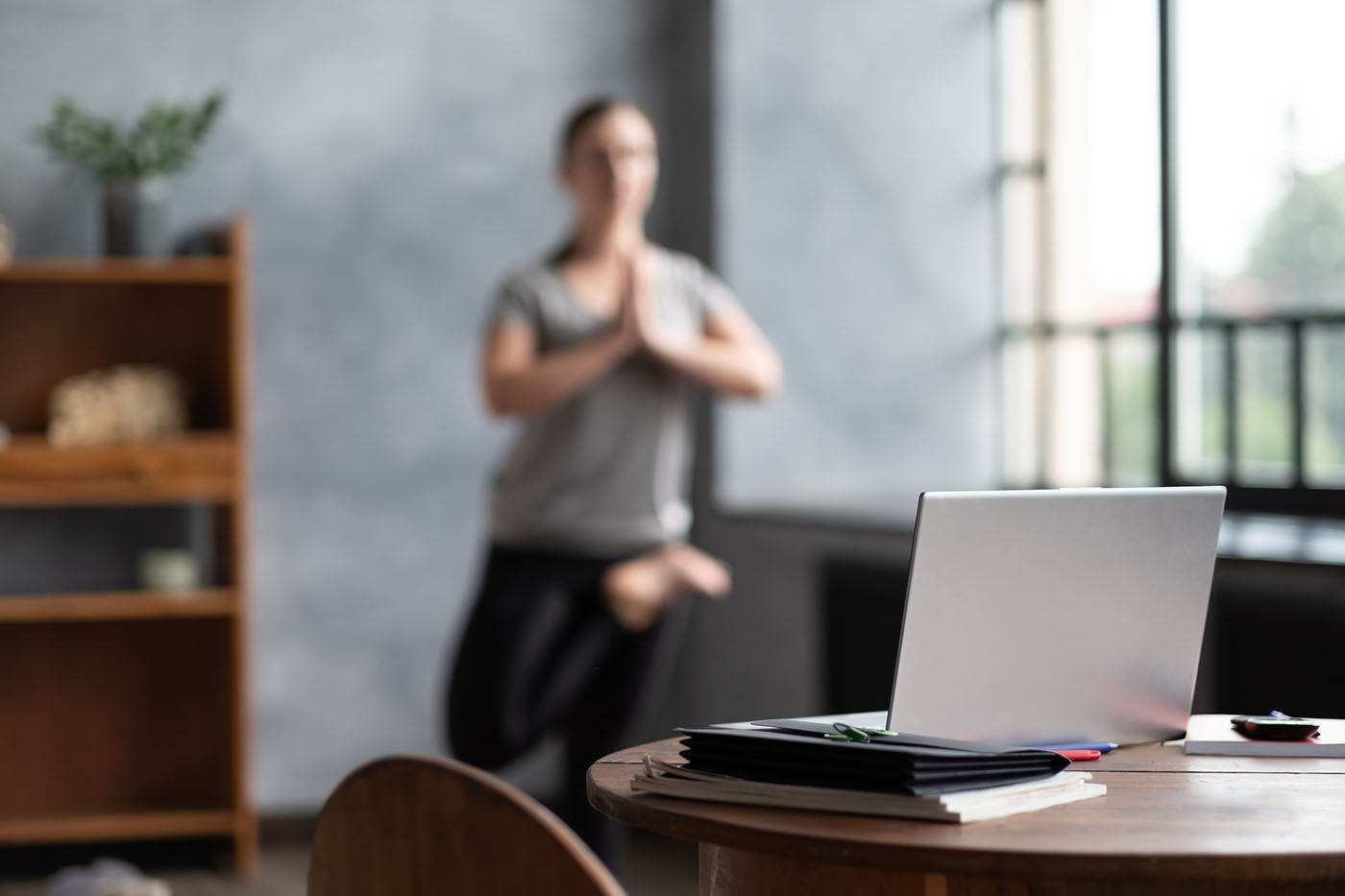Balancing a high-pressure career with our personal well-being is challenging enough—and for parents, there’s an…

Stress vs. Anxiety: Why It’s Important To Know the Difference
It’s 7am. Your morning alarm is blaring beside your head. You stumble into the kitchen and see the mountain of yesterday’s dishes in the sink. You just didn’t have the time or energy to deal with it last night, after working late and shuttling the kids back and forth from extracurriculars.
You think about packing a lunch, but you can’t remember where you left your lunchbag, and all the tupperware is part of that mountain in the sink. You have a full day ahead of you, anyway – maybe it’s better to just grab a salad when you get a minute. That commitment to spending less on takeout will just have to wait another day.
But as the day goes on, you don’t get a minute. Not enough of one, anyway. You end up with snacks from the vending machine between meetings that all run too long, and by the time 5pm rolls around, you realize with a sinking feeling that you never actually got to the things on your to-do list. You’re going to miss that deadline, after all. You wonder if this will be the thing that makes your boss hate you.
“Why can’t I just get it together?” you think to yourself. “I just don’t manage my time well enough. I have to try harder.”
We’ve all had days like this – even full weeks where there’s just too much going on. We even start to beat ourselves up and imagine the worst. And our social media comparison culture doesn’t help us feel any better about the times we just don’t have it all under control.
Stress, on its own, isn’t an inherently bad thing. In fact, it can even be motivating – in small doses. Chronic stress, on the other hand, or high stress that lasts for a long time, is dangerous. And it can be followed closely by anxiety, some of which can be severe and disruptive.
Stress and anxiety are both normal human reactions to change, uncertainty, and competing obligations. But they aren’t the same thing – and understanding how to identify stress vs. anxiety and distinguish between them is the only way to effectively manage their impact.
The difference between stress and anxiety
Correctly distinguishing stress from anxiety is a vital step in managing and overcoming your symptoms. So where do you start?
Begin by naming your feelings. Studies show that a high level of emotional granularity – or the ability to identify and use specific language to describe your emotions – can lead to a significant reduction in stress, anxiety, and depression. Self-awareness is key here.
Think about the things at the heart of your feelings. Put simply, stress is due to external factors – obligations at work or in your relationships, for example. When the demands placed on you exceed your available resources, the result is a feeling of stress.
Anxiety, on the other hand, is a reaction to that stress. An additional dimension of fear is added to the stress response; you might catastrophize (“If I don’t handle all of this perfectly, I will lose my job and wind up homeless!”) or personalize the stress (“I won’t be able to juggle all of this well because I’m a failure.”).
Sometimes, this anxiety can persist even after the stressor has been removed. And if you have an anxiety disorder like generalized anxiety disorder, panic disorder, phobias, social anxiety, obsessive compulsive disorder, or post-traumatic stress disorder, you’ll be left even more vulnerable to negative reactions to the stressors in your life.
Not only can it feel freeing to recognize a stressor on its own without the accompanying catastrophizing or personalizing of anxiety, but proper identification of your feelings is important for treatment – methods like cognitive behavioral therapy (CBT) can be game-changing for anxiety sufferers, while chronic stress may mean you need to address the imbalance between your resources and the demands you’re facing.
Stress and anxiety for high-performers and athletes
High-performing people tend to be less likely to ask for help – and it can be less obvious that they need it. When we’re used to pushing ourselves hard and “powering through” other areas of our lives, we can take that same approach to stress and anxiety, inadvertently making them worse.
When stress and anxiety get wrapped up into our motivation to succeed, though, the lines can get blurry; high-performers can wind up believing that there’s no alternative to living a high-stress life, or that the stress and anxiety are crucial to an increased level of achievement.
It’s true that not all anxiety is bad anxiety. According to the Yerkes-Dodson law1, there’s an optimal level of anxiety that drives performance, allowing you to focus on the task at hand and recall information more quickly. Outside of this optimal level, however, is where the problems lie; too little arousal can cause you to perform badly out of boredom, while too much can leave you jumpy and prone to making mistakes.
Striking this balance is delicate, and chances are, if you’ve wondered if your stress is too high or your anxiety too strong, they likely are. It can be difficult to admit that we’re struggling, but a poor stress response can come with its own longer-term ramifications, including increasing the likelihood of injury and a slower or otherwise negatively-impacted recovery time2.
Managing stress vs. anxiety
Stress and anxiety can share many of the same symptoms, like headaches, muscle tension, and changes to sleep and eating habits. You might experience irritability, restlessness, and difficulty focusing or concentrating on the task at hand.
And because we often experience anxiety with stress – and even vice versa, if anxiety is depleting the resources you have to deal with demands on your time – it can be a vicious cycle.
The silver lining of stress and anxiety often going hand-in-hand is that there are things you can do to manage symptoms of both simultaneously.
Name your feelings
Naming your emotions is the first step toward owning them. Rely on emotional granularity to get specific about what you feel and help you identify patterns in your behaviors and in your reactions to stressors. This will empower you to take control of your actions and, eventually, your thought patterns.
Physical activity and mind-body connection
Regular physical activity is one of the most effective ways to manage the symptoms of both stress and anxiety. Breaking a sweat through aerobic exercise most days of the week is recommended, as is regular breathwork and practices that encourage mind-body connection, like yoga and meditation.
Make necessary lifestyle adjustments
Those vending machine snacks that ended up being your lunch are not going to fuel your body appropriately – you know that already. Prioritize a healthy diet and plenty of water to stay hydrated. This also means limiting your caffeine intake, as it can work to dehydrate you and even give you more of those anxious jitters you’re trying to avoid.
Practice good sleep hygiene, as well. Put your screens away an hour before bed, keep your bedroom as clutter-free as possible, and give yourself plenty of a time for a calming nighttime routine that will signal to your body and mind that the day has come to its end.
Therapy
Seeking the help of a professional is the best first step you can take if you’re struggling with stress or anxiety. Because although there are ways to manage your symptoms, it’s best to seek help in identifying the root causes of your experiences.
A qualified therapist, clinical psychologist, or sport psychologist like the practitioners at Amplify Wellness + Performance can help you determine the underlying causes of the challenges you’ve been facing, and you can work together to chart the best path forward toward reaching your goals without stress and anxiety holding you back.
Endnotes


